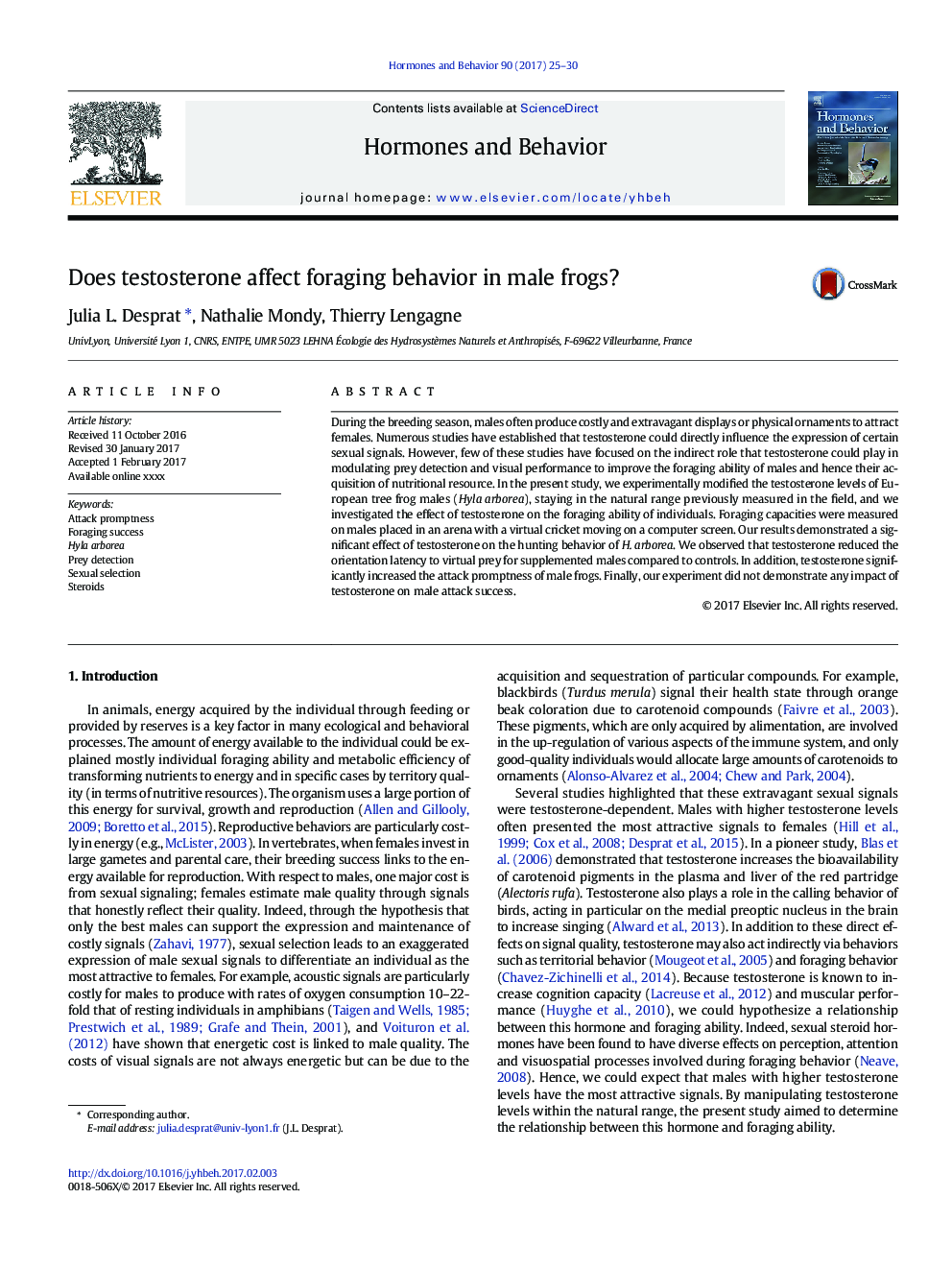| Article ID | Journal | Published Year | Pages | File Type |
|---|---|---|---|---|
| 4931034 | Hormones and Behavior | 2017 | 6 Pages |
Abstract
During the breeding season, males often produce costly and extravagant displays or physical ornaments to attract females. Numerous studies have established that testosterone could directly influence the expression of certain sexual signals. However, few of these studies have focused on the indirect role that testosterone could play in modulating prey detection and visual performance to improve the foraging ability of males and hence their acquisition of nutritional resource. In the present study, we experimentally modified the testosterone levels of European tree frog males (Hyla arborea), staying in the natural range previously measured in the field, and we investigated the effect of testosterone on the foraging ability of individuals. Foraging capacities were measured on males placed in an arena with a virtual cricket moving on a computer screen. Our results demonstrated a significant effect of testosterone on the hunting behavior of H. arborea. We observed that testosterone reduced the orientation latency to virtual prey for supplemented males compared to controls. In addition, testosterone significantly increased the attack promptness of male frogs. Finally, our experiment did not demonstrate any impact of testosterone on male attack success.
Related Topics
Life Sciences
Biochemistry, Genetics and Molecular Biology
Endocrinology
Authors
Julia L. Desprat, Nathalie Mondy, Thierry Lengagne,
